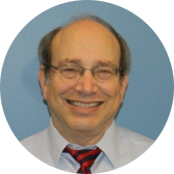Gene Therapy Strategies for Huntington's Disease

What is Huntington's disease?
Huntington's disease is a genetic disease that causes loss of cognition, abnormal movement, and depression. Patients with Huntington's disease generally begin to show symptoms between age 30 and 40, but can exhibit clinical problems in their teenage years. Huntington's disease causes early death, often after many years in high intensity and expensive nursing care. Currently, there is no treatment that alters the course of the disease.
Dr. Neil Aronin, MD
A leading researcher on Huntington's disease
Neil Aronin, MD, is a Professor of Medicine, Cell and Development Biology & the RNA Therapeutics Institute, Division Chief of Endocrinology and Metabolism, Co-Director, Neuro- Therapeutics Institute, UMass Chan Medical School Aronin received his B.A. from Duke University, MCL, and his M.D. from University of Pennsylvania School of Medicine. His research focuses on RNA Therapeutics for Huntington’s disease. Approaches include use of synthetic siRNAs (oligonucleotides) and adeno-associated viruses containing miRNAs. The laboratory has contributed to basic understandings of the pathogenesis of Huntington’s disease.
In 2015, Aronin was awarded the Huntington’s Society of America Research Award. He has served as a consultant for Alnylam for three years and shared intellectual property and patents (three), all related to Huntington’s disease therapeutics.
Dr. Aronin and Dr. Zamore's RNAi therapy strategy for Huntington's disease
With his collaborator, Phillip D. Zamore, Ph.D., Dr. Aronin's is exploring a promising new therapeutic approach called "gene silencing" or RNAi. The goal of gene silencing is to shut off the mutant huntingtingene (the one that causes the disease), while preserving the normal huntingtin gene. Their initial experiments indicate that their therapeutic strategy is effective and safe in cultured cells and mice. They are currently examining how the gene silencing can be best delivered to people. They study mouse models of Huntington's disease and intend to expand our research to study animals with large brains, as part of the pre-clinical investigations required to develop drugs used to treat people.
|
Neil Aronin, M.D., F.A.C.P, F.A.C.E.Professor of Medicine, Cell and Development Biology & the RNA Therapeutics Institute, Division Chief of Endocrinology and Metabolism, Co-Director, Neuro- Therapeutics Institute, UMass Chan Medical School |
Dr. Chris Mueller, PhD
A leading expert on vector-derived RNAi using AAV vectors
Chris Mueller, PhD, is an Associate Professor of Pediatrics and a faculty member of the Horae Gene Therapy Center. Dr. Mueller received his PhD from the University of Florida and later became an independent investigator at UMass where he established his lab in 2011. Alpha-one antitrypsin has always remained his primary line of research. Dr. Mueller was recently awarded the 2016 Shillelagh Award from the Alpha-1 Foundation, which rewards outstanding Alpha-1 researchers and clinicians.
Dr. Aronin and Dr. Mueller's gene therapy strategy for Huntington's disease
Dr. Aronin has partnered with Dr Mueller, an expert on vector-derived RNAi using AAV vectors, to develop such a therapy for Huntington’s disease. An artificial miRNA targeting the huntingtin (HTT) gene was designed and validated in vitro. This molecule, called miR-Htt, was shown to efficiently silence HTT. Next, it was tested in several animal models of Huntington’s disease including mice and sheep where it demonstrated safety and efficacy.
Other research interests
Currently Dr. Mueller is also developing gene therapy strategies on Alpha-one Antitrypsin (AAT) Deficiency, Amyotrophic Lateral Sclerosis (ALS) and Cystic Fibrosis.
|
Chris Mueller, PhDAssociate Professor, Department of Pediatrics and Horae Gene Therapy Center View Publications Visit Lab Website
|


